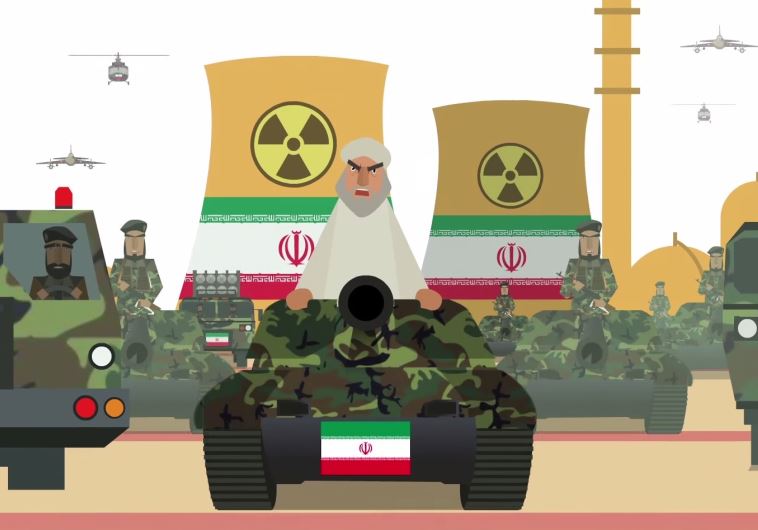Prime Minister’s Office gears up for battle in US against Iran accord
To the question of whether this deal makes it less likely that Iran will get a nuclear weapon, the talking points say the opposite is true.
 Israeli cartoon warns - Iran is worse than ISIS(photo credit: PRIME MINISTER'S OFFICE)Updated:
Israeli cartoon warns - Iran is worse than ISIS(photo credit: PRIME MINISTER'S OFFICE)Updated: